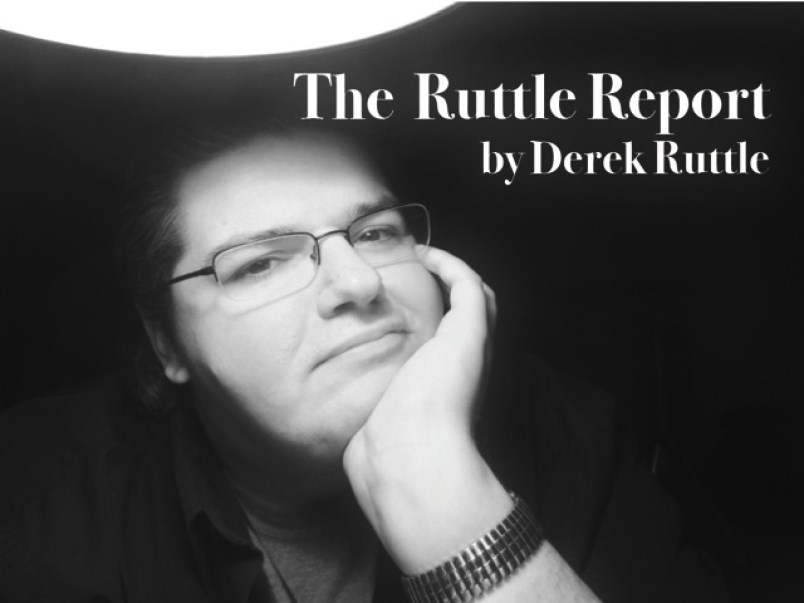In the last week, I’ve been reading a story about how someone’s controversial opinion has been making the rounds on social media.
It comes from an opinion piece that was written by columnist Brian Giesbrecht and published in the Fort Times, a fellow newspaper based in Fort Qu’Appelle.
Brian’s editorial was centered on Canada Day, but its additional claims about residential schools also created controversy. The thought-piece, entitled ‘We have nothing to be ashamed of on Canada Day’ offended some Indigenous people and allies in the southern part of the province.
The piece criticizes Kevin Annett, a former minister of the United Church of Canada, for “inventing” stories of priests murdering children and hiding the bodies, and also points a target at those who believe what Giesbrecht calls “conspiracy theories.”
The publishing group behind the paper decided to stick with the editorial, but they’ve reminded people that Giesbrecht’s opinions don’t necessarily reflect those of the publication. Still, the paper’s lost one ad so far as a result of it.
Some parts of Brian’s editorial in question:
“Some Canada Day organizers have been spooked by last summer’s hysteria over 215 Indigenous children murdered and secretly buried at Kamloops. News of the alleged murders led to churches being set on fire, statues being toppled, and a panicked Prime Minister lowering Canadian flags across the country. In many places, Canada Day celebrations were called off.
The hysteria over the 215 graves was ill-founded because not a single body was unearthed. The graves turned out to be soil disturbances and nothing more.
The same results were found at Shubenacadie, Nova Scotia, The Charles Camsel Hospital in Alberta, Kuper Island, British Columbia, and Brantford, Ontario, after excavations were conducted. No bodies turned up.
This is not to criticize communities which are legitimately searching for the lost burial sites of their recent ancestors. But the secretly buried bodies of residential school children are a different matter.
It turns out that the stories of priests murdering children and secretly burying them or throwing them into furnaces have been around for decades. These stories were, in fact, invented by a defrocked and unhinged ex-minister by the name of Kevin Annett. Over the last two decades, his claims have spread like wildfire in Indigenous communities.
Canada’s history does not include priests secretly burying Indigenous children with the forced help of six-year-olds, but it includes much Canadians can be proud of. Both Indigenous and non-Indigenous men and women have built this wonderful country in which we live. Chiefs with vision, such as Chief Peguis, Crowfoot, and John A. Macdonald, have blazed trails that allow us to live long and comfortable lives in a stable, peaceful, and generous country.”
The full thing can be found online.
It’s an eyebrow-raiser, that’s for sure. Delving a little bit deeper with a quick Google search, it turns out that this isn’t the first time that Brian’s been under the proverbial gun. In 2017, the Chronicle Journal, the ‘Newspaper of the Northwest’, ran a commentary by Dan Oldfield taking Giesbrecht to task over a recent column that he’d written, naming him as a “senior fellow at the right-wing think tank Frontier Centre for Public Policy.” In the eyes of Oldfield, Giesbrecht was playing on one of the oldest racist stereotypes in order to make his point, complaining about what he referred to as, “these very rich Indian status benefits”.
Oldfield called this “doubly disturbing”, given that “the author was part of a system where incarceration rates for Indigenous Peoples are 10 times higher than non-Indigenous rates.”
So, what exactly do we do with unpopular opinions? Do we slam the door in the author’s face? Do we not give them a platform to be read, seen or heard? Do we not pay attention to the writers of these alarming thought-pieces and just hope that they eventually go away?
Well, I’m not sure that it’s as simple as any one choice or the other. I think there’s a little bit of a ‘grey area’ here.
I’ve been doing what I do for over 15 years, and in my book, no, this man’s opinion piece, though as fractured as it may be and with as many holes in logic there may be, should not be removed and should be left where it is for anyone who chooses to read it and take in the thoughts that are presented. We’re fortunate enough to live in a country where we’re free to express our opinions, even if those opinions are deemed controversial or they ruffle many feathers.
But we *have* to let those opinions exist, no matter how much we disagree with them. You want to fight these opinions? Then it’s simple - SAY SOMETHING. Write a rebuttal piece in response. Get on the level playing field. Blow the statements that have been made straight out of the water. In my line of work, we've published a whole lot of letters to the editor that raised eyebrows and stirred up a ton of feelings. But you know what? We still published them, and in response, people replied back with their own takes. In the end, conversations were started and people opened their eyes a little more on whatever subject was being discussed.
In short, no one wins when we block out unpopular opinions and prevent others from having a voice. When we do that, we've lost a key part of what makes us truly free.
It’s great to read good things, but the bad things need to exist even if they simply serve as a learning lesson for future generations.
For this week, that’s been the Ruttle Report.




